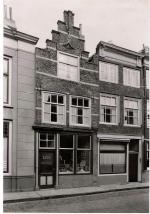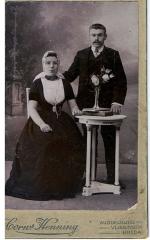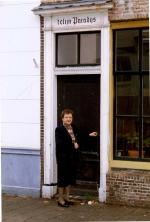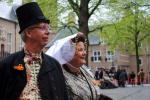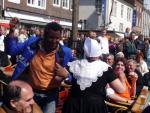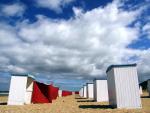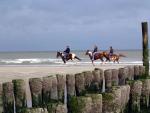|
The Wyckoff-Bennett House
The Wyckoff-Bennett House, is the last privately owned 1700's Dutch Colonial house in New York City. Located at 1669 E. 22nd Street in Brooklyn, New York. It is declared as a National Historic Landmark in 1976. It is believed to have been build before 1766, because that date was carved into a beam in the barn
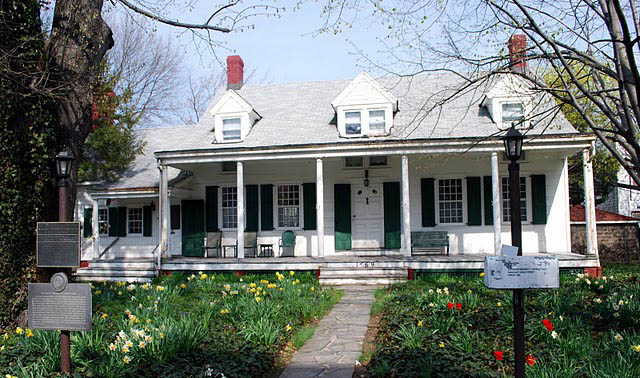
Front op the Wyckoff-Bennet House at E. 22 nd Street NY City, Brooklyn
A beautiful farmhouse example in the Dutch Colonial style, it has been continuously occupied since its construction. The house was built by Hendrik and Abraham Wyckoff, descendants of Pieter Wyckoff who immigrated to this America in 1637, about 10 years after the arrival of the first Dutch colonists. The house was bought by Cornelius William Bennett in 1832, and the Bennett family held possession through four generations until 1983, when it was sold to the Mont family.
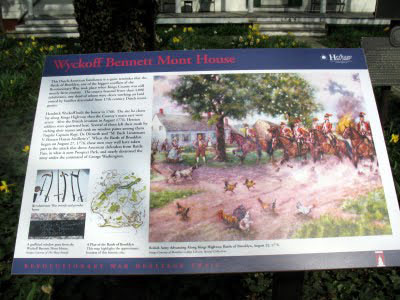
Display-board historical review, now as the Wyckoff-Bennt, Mont House
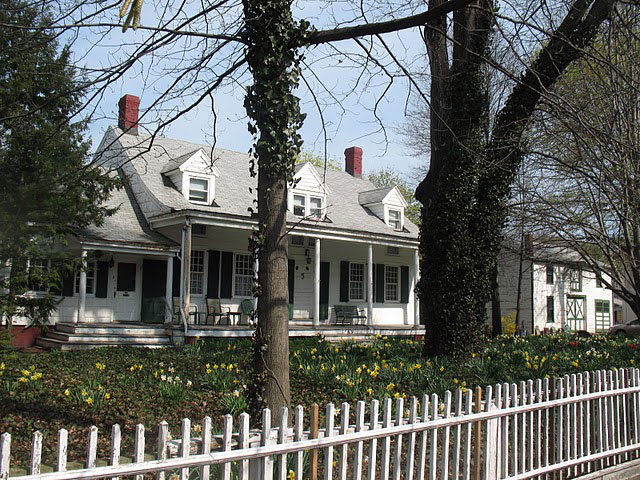
Side view of the farmhouse
Currently the house is being purchases by the City of New York from the present owners, Annette and Stuart Mont, who will remain living in the house as lifelong tenants and caretakers of the home. The homestead will be called the Wyckoff Bennett Mont House Park, and will become a Historic House Museum,
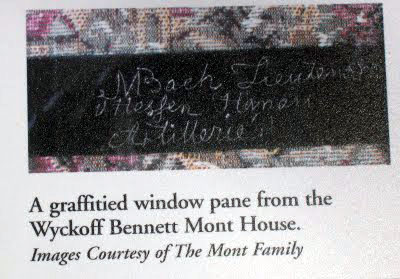
Jersey Dutch
Jersey Dutch is a American-Dutch dialect spoken from the 17th century untill begining 20th century, mainly in the Northern State of New Jersey. It was a kind of creolic dialect of Dutch Sealand, Flamish languages, mixed by American English or even verbs of Indian source. There was also a variant called Negerduits (Negro Dutch), because it was spoken by coloured people.
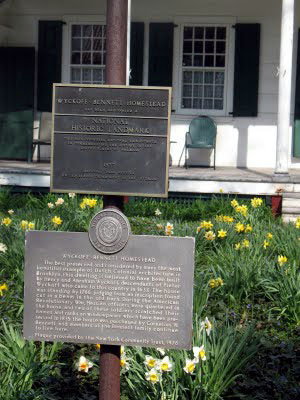
An example of Jersey Dutch
En kääd'l had twî jongers; de êne blêv täus;
de andere xong vôrt f'n häus f'r en stat.
Hai waz nît tevrêde täus en dârkîs tû râkni arm.
Hai dogti ôm dat täus en z'n vâders pläk.
Tû zaide; äk zal na häus xâne. Main vader hät plänti.
Translated into Standard Dutch
Een man had twee jongens; de ene bleef thuis;
de andere ging voort van huis voor een vermogen.
Hij was niet tevreden thuis en hij werd daardoor arm.
Hij dacht aan thuis en zijn vaders plaats.
Hij zei; ik zal naar huis gaan. Mijn vader heeft overvloed.
Translated into English
A man had two boys. The one stayed at home;
the other went away from home to make his fortune.
He was not satisfied at home and because of that he became poor.
He thought about home and his father's place.
He said; I shall go home. My father has plenty.
Text in Jersey Dutch by Dr. J. Dynely Prince, 1910, Radio Netherlands
http://www.rnw.nl
Photo's in courtisy of Mille Fiori Favoriti.
http://millefiorifavoriti.blogspot.com
Videoclip; Wyckoff Farm House (3.45 min) http://youtu.be/LzjmxEr6_lg
Videoclip; Amsersfoort School NY, Holland Exposition (1.50 min) http://youtu.be/sYWGuc9iWKo
Videoclip: Amersfoort School NY, sings Dutch folksong to PM Balkende http://youtu.be/rpE6wgo1NYo
|



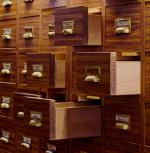
 Ik ben Albert Prins
Ik ben Albert Prins